BOSTON, US: The use of artificial intelligence (AI) in remote monitoring for clear aligner therapy is becoming increasingly popular and promising greater clinical control and an improved patient experience. In a recent study, researchers at Harvard School of Dental Medicine in the US evaluated AI-generated decisions about whether a patient is ready to move to the next aligner stage (Go or No-Go decisions) and measured what the systems identified as an unseat or tracking discrepancy. According to the researchers, the findings raise concerns about the consistency of remote monitoring instructions.
In addition to assisting with Go or No-Go decisions, remote monitoring technology identifies any misalignment between the tooth position and the aligners. The study aimed to evaluate the consistency of Go or No-Go recommendations made by the software and to quantify the 3D discrepancies that indicate an aligner misfit.
A total of 30 patients undergoing clear aligner treatment were scanned twice using a smartphone-based remote monitoring app, and the data was analysed for consistency. The study also included 24 clear aligner patients who had completed their treatment. These patients underwent both intra-oral scanning and remote monitoring scanning using their final aligners. The study compared the post-treatment intra-oral scans with the STL files representing the planned tooth positions at the final aligner stage in order to assess the maximum deviations between the actual and intended tooth positions.
The study observed a gauge compatibility of 44.7%. There was an 83.3% agreement in patient instructions between the first and second scans; however, there was no complete consensus on which teeth were or the number of teeth experiencing tracking issues. For patients advised to proceed with the next aligner via a Go instruction, the mean maximum discrepancies observed were 1.997 mm mesiodistally, 1.901 mm buccolingually, 0.530 mm occlusogingivally, and 8.911°, 7.827° and 7.049° for tipping, torque and rotation, respectively. These discrepancies were statistically similar to those in patients advised against proceeding (No-Go instruction), who showed discrepancies of 1.771 mm, 1.808 mm, 0.606 mm, 8.673°, 8.134° and 6.719° in the same respective dimensions.
“Despite the study’s limitations, these findings suggest concerns with the consistency of remote monitoring instructions because of gauge compatibility over the industry standard. Similarly, large discrepancies in tooth position for patients receiving Go and No-Go instruction suggest that artificial intelligence decisions were inconsistent with quantitative findings,” the authors wrote.
The study, titled “Assessment of artificial intelligence–based remote monitoring of clear aligner therapy: A prospective study”, was published in the August 2023 issue of the American Journal of Orthodontics and Dentofacial Orthopedics.
Tags:
CINCINNATI, US: The prevalence of gingivitis continues to be a significant public health concern, and barriers such as limited access to healthcare and high...
Smart toothbrushes and intra-oral sensors that continually monitor biomarkers in the oral cavity, efficient and free dental services based on preventive and...
BANGKOK, Thailand: The use of telehealth services increased rapidly during the COVID-19 pandemic, prompting wider acceptance of digital consultations and ...
This year, the International Dental Show’s (IDS) centenary year, the 40th edition of IDS, the world’s leading trade fair for dentistry, will focus on ...
LONDON, UK: Digital technologies have changed the way in which we live and the ways in which we align teeth. According to leading UK orthodontic specialist ...
NEW YORK, US: For many consumers, clear aligner therapy is dentistry the way it should be—aesthetic, convenient and a good fit for busy daily work or ...
SAN JOSE, Calif., US: The world’s largest clear aligner treatment provider has alerted investors to a substantial slowdown in new orthodontic appointments...
Live webinar
Tue. 6 August 2024
6:00 pm New York
Live webinar
Tue. 6 August 2024
8:00 pm New York
Dr. Cameron Shahbazian DMD MBA
Live webinar
Tue. 13 August 2024
7:00 pm New York
Live webinar
Wed. 14 August 2024
12:30 pm New York
Live webinar
Wed. 21 August 2024
9:00 am New York
Dr. Jim Lai DMD, MSc(Perio), EdD, FRCD(C)
Live webinar
Thu. 22 August 2024
4:00 pm New York
Live webinar
Wed. 28 August 2024
8:00 pm New York



 Austria / Österreich
Austria / Österreich
 Bosnia and Herzegovina / Босна и Херцеговина
Bosnia and Herzegovina / Босна и Херцеговина
 Bulgaria / България
Bulgaria / България
 Croatia / Hrvatska
Croatia / Hrvatska
 Czech Republic & Slovakia / Česká republika & Slovensko
Czech Republic & Slovakia / Česká republika & Slovensko
 France / France
France / France
 Germany / Deutschland
Germany / Deutschland
 Greece / ΕΛΛΑΔΑ
Greece / ΕΛΛΑΔΑ
 Italy / Italia
Italy / Italia
 Netherlands / Nederland
Netherlands / Nederland
 Nordic / Nordic
Nordic / Nordic
 Poland / Polska
Poland / Polska
 Portugal / Portugal
Portugal / Portugal
 Romania & Moldova / România & Moldova
Romania & Moldova / România & Moldova
 Slovenia / Slovenija
Slovenia / Slovenija
 Serbia & Montenegro / Србија и Црна Гора
Serbia & Montenegro / Србија и Црна Гора
 Spain / España
Spain / España
 Switzerland / Schweiz
Switzerland / Schweiz
 Turkey / Türkiye
Turkey / Türkiye
 UK & Ireland / UK & Ireland
UK & Ireland / UK & Ireland
 International / International
International / International
 Brazil / Brasil
Brazil / Brasil
 Canada / Canada
Canada / Canada
 Latin America / Latinoamérica
Latin America / Latinoamérica
 USA / USA
USA / USA
 China / 中国
China / 中国
 India / भारत गणराज्य
India / भारत गणराज्य
 Japan / 日本
Japan / 日本
 Pakistan / Pākistān
Pakistan / Pākistān
 Vietnam / Việt Nam
Vietnam / Việt Nam
 ASEAN / ASEAN
ASEAN / ASEAN
 Israel / מְדִינַת יִשְׂרָאֵל
Israel / מְדִינַת יִשְׂרָאֵל
 Algeria, Morocco & Tunisia / الجزائر والمغرب وتونس
Algeria, Morocco & Tunisia / الجزائر والمغرب وتونس
 Middle East / Middle East
Middle East / Middle East
:sharpen(level=0):output(format=jpeg)/up/dt/2024/06/Align-Technology-awards-research-grants-to-11%E2%80%AFuniversities.jpg)
:sharpen(level=0):output(format=jpeg)/up/dt/2024/06/LM-DentalTM-introduces-new-enhanced-My-LM-ActivatorTM-appliance-for-early-orthodontic-treatment-2.jpg)
:sharpen(level=0):output(format=jpeg)/up/dt/2024/05/Curaprox_DTI_Birmingham_Article_Image_1920x1080.jpg)
:sharpen(level=0):output(format=jpeg)/up/dt/2024/05/Integrating-clear-aligners-expands-the-possibilities-you-have-available-to-offer-your-patients.jpg)
:sharpen(level=0):output(format=jpeg)/up/dt/2024/05/Ethical-communication-and-brand-building_Shutterstock_2207894123.jpg)
:sharpen(level=0):output(format=jpeg)/up/dt/2023/12/Study-raises-concerns-about-AI-in-remote-monitoring-of-clear-aligner-therapy.jpg)

:sharpen(level=0):output(format=jpeg)/up/dt/2024/06/Align-Technology-awards-research-grants-to-11%E2%80%AFuniversities.jpg)
:sharpen(level=0):output(format=gif)/wp-content/themes/dt/images/dt-user.gif)
:sharpen(level=0):output(format=jpeg)/up/dt/2023/09/Researchers-develop-at-home-test-that-can-diagnose-gingivitis.jpg)
:sharpen(level=0):output(format=jpeg)/up/dt/2023/06/What-will-dental-care-look-like-in-2040.jpg)
:sharpen(level=0):output(format=jpeg)/up/dt/2023/07/Study-explores-use-of-intra-oral-cameras-in-Thai-prisons.jpg)
:sharpen(level=0):output(format=jpeg)/up/dt/2023/02/Trends-in-dental-technology%E2%80%94analogue-and-digital-go-hand-in-hand.jpg)
:sharpen(level=0):output(format=jpeg)/up/dt/2022/09/Providing-best-orthodontic-treatment-in-era-of-patient-empowerment.jpg)
:sharpen(level=0):output(format=jpeg)/up/dt/2023/11/Ensuring-predictable-results-in-clear-aligner-therapy.jpg)
:sharpen(level=0):output(format=jpeg)/up/dt/2023/11/Drop-in-orthodontic-case-starts-spooks-Align-Technology-investors.jpg)














:sharpen(level=0):output(format=jpeg)/up/dt/2024/06/Align-Technology-awards-research-grants-to-11%E2%80%AFuniversities.jpg)
:sharpen(level=0):output(format=jpeg)/up/dt/2024/06/LM-DentalTM-introduces-new-enhanced-My-LM-ActivatorTM-appliance-for-early-orthodontic-treatment-2.jpg)
:sharpen(level=0):output(format=jpeg)/up/dt/2024/05/Curaprox_DTI_Birmingham_Article_Image_1920x1080.jpg)
To post a reply please login or register